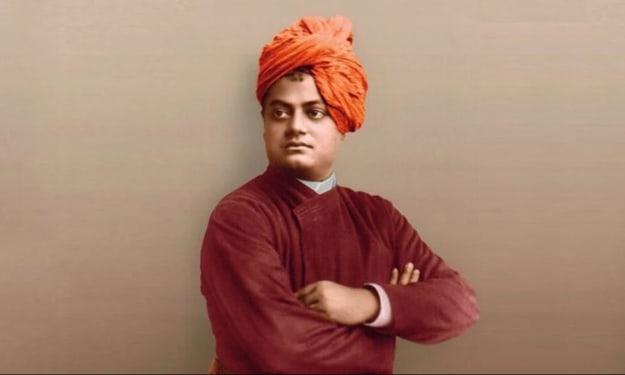Telling Tales: Why Survivor Stories Matter
Listening to survivors can help all of us.

Earlier this year, I attended a recovery program for survivors of domestic violence. The abuse had taken place more than 10 years previously, and it had haunted me ever since. The first time around, I tried to seek help, but I was let down by all the agencies that I sought help from: my doctor, social workers, the police. My abuser’s stalking behaviour and his tactic of threatening and harming anyone close to me left me isolated and without support. He was a charmer and the master of telling a good tale himself; with no evidence to back up his often extraordinary claims, those in authority took his word over mine.
As a child, I was frequently bullied, although not relentlessly, and I did have a few friends. But teachers were not always helpful. Reporting unpleasant behaviour from others, I was told not to “tell tales,” as if I should toughen up and ignore them. Ignoring the bullies is another piece of shoddy life advice given to me as a child—it just makes them try even harder to upset you. I became very bitter and developed an emotional exoskeleton that has both helped and hindered me throughout my life. I feel like my heart has become hardened, and I am less trusting and more ruthless in my interactions with others. I can spot a liar from 300 feet, but I see friends and strangers letting their guard down and finding happiness through vulnerability, and know that I am missing out.
The purpose of the program was to identify the types of controlling behaviours that abusers use, to understand their motivations and methods, and to ensure that the attendees did not fall into the same traps again. But it gave me something else, it provided me with validation. I had not imagined it—it happened to me, and it happened to all the other women that attended. Each session we analysed one technique of the abusive partner, and it was strangely comforting to look back and recognise that my abuser had used those exact methods, and no, I wasn’t mad. But more than that, the course gave me a sense of solidarity. Each of us women had a story to tell, and to hear those other stories, and know that I went through similar, gave me the confidence to appreciate that the abuse was real, that it was actually “that bad,” and that it wasn’t all in my head. As well as that, it was a relief to have finally been believed after all this time. I’m nowhere near fully recovered yet, but attending that program gave back something that I had taken away from me.
There has been a lot in the news recently about historic sexual abuse of women and children. Many survivors are now coming forward because others have done so before them and it has been publicised in the media. This was a new initiative by the police, which they used in cases where they suspected that numerous victims had been involved. In most of these cases, a celebrity was the abuser, and the victims were put in situations where nobody would have believed them at the time (a lot of this was to do with our culture, not just the individual survivors circumstances). Knowing that others had been through the same, and were being taken seriously; helped them to come forward, be believed themselves, and to seek justice.
The problem with a lot of these historic abuse cases is that the abusers were correct in their assumptions: the victims just weren't believed at the time, or they were blackmailed into keeping quiet. The celebrity abusers got away with it for decades, and that's just the ones we know about. There could have been countless other cases, perhaps with a less-well-known attacker who managed to avoid detection. Typically, the abuser would go after victims that were of a social class that meant they wouldn't be trusted if they complained (e.g. the girls in care, or in special schools, that Jimmy Savile chose to abuse), or that relied on the attacker for something (such as the boys abused by Barry Bennell when trying out for Premiership football teams, or the actresses that Bill Cosby assaulted).
In the UK, there were also grooming gangs that went unapprehended due to a mixture of beliefs about the credibility and vulnerability of the victims, and concerns over cultural sensitivities due to the ethnicity of the abusers. Not only were the victims let down, but detectives and caseworkers who had tried to get justice were brushed aside as well.
It's been a stark wake-up call for the public, who maybe thought that “that sort of thing doesn't affect people like us”—but it is a lot more common than previously thought. The trouble is, we buried the problem, where it could go on undetected for years. Widespread attitudes about it being the victim's fault, or that they were asking for it, or that it only happens to “bad people” have been challenged. We are forced to confront the horrific injustices of the past, and to pay attention if we see or hear something that doesn't sound right—be it a bad attitude or rumours of an actual assault.
There are a lot of conversations happening nowadays about how we need to reflect upon our own beliefs and behaviours, and this has been met with resistance. But the conversations are at least happening. It takes time to bring change in society, and it's awkward here in particular because there are those (ordinary white men, I'm looking at you) who feel that it's not their problem because they personally would never do something so terrible. But we are presented with evidence that actually, it is ordinary, often white, men who rape and abuse. They have families, jobs, respectable positions in society. They are just like us. Anyone can abuse or be abused, there are no perfect victims, and our willful ignorance allows it to happen. It's a shame that so many have had to suffer for us to understand this.
I can only try to imagine the pain those survivors went through, not just from the abuse itself, but carrying it with them throughout their lives. For many, they will also have experienced the relief of being believed and getting justice. But many more won't. Now that we have a clearer picture of the problem, we need to be more vigilant, and more understanding. We must question our own beliefs; recognise that many of our ideas about our culture, and the nature of abuse, need updating; and we must not allow people to seem immune from committing terrible acts. And we need to listen to victims, and take them seriously. Sometimes we may need to self-reflect in a way that makes us uncomfortable. But a little discomfort is a small price to pay for saving thousands from the trauma of rape and abuse.
About the Creator
Katy Preen
Research scientist, author & artist based in Manchester, UK. Strident feminist, SJW, proudly working-class.






Comments
There are no comments for this story
Be the first to respond and start the conversation.